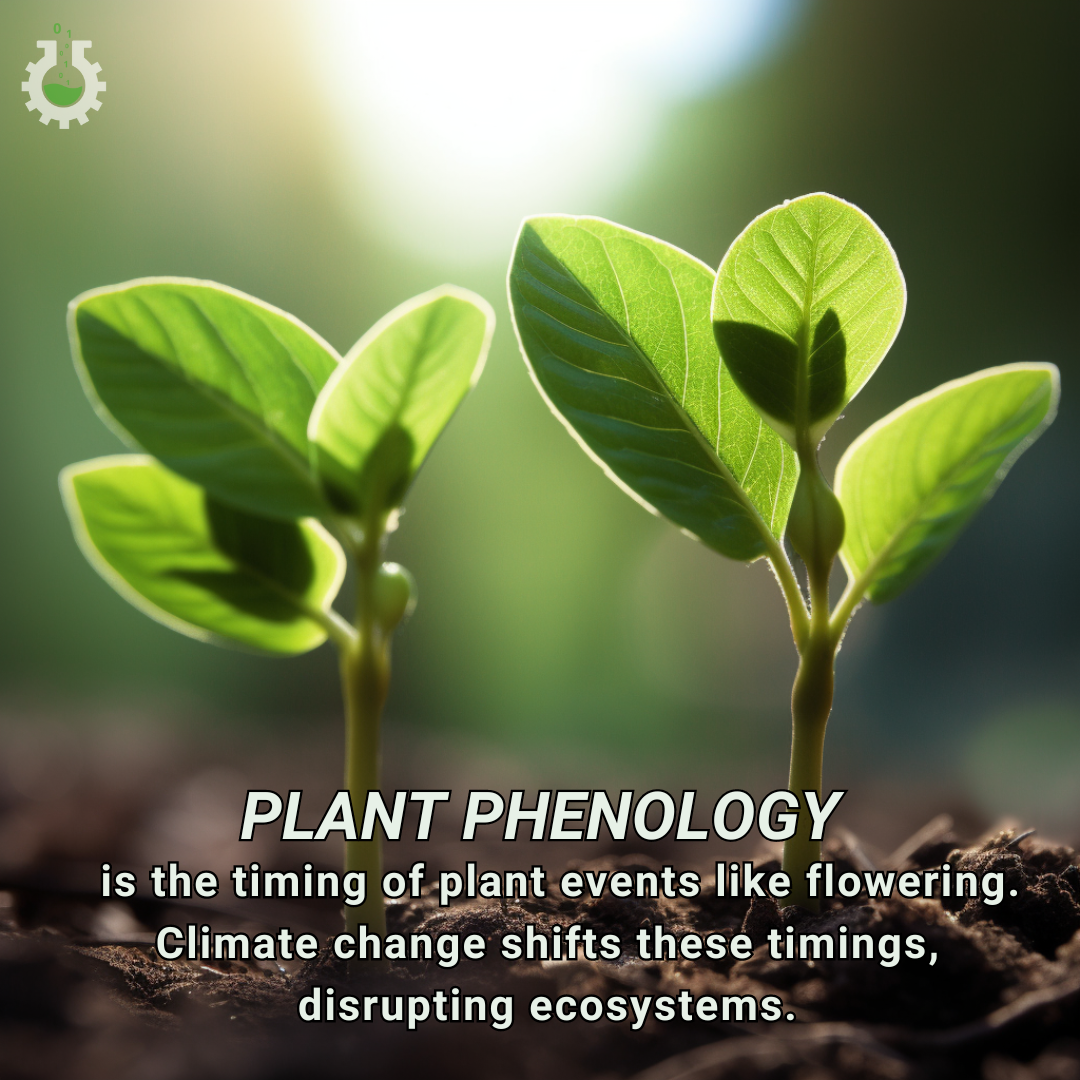July 12, 2024
Climate Change Poster Collection of the Day – Plant Phenology
Book a Demo
Today’s Climate Change Poster Collection highlights Plant phenology, the study of the timing of life cycle events in plants such as flowering, leaf-out, and fruiting, serves as a sensitive indicator of environmental changes. As the climate warms, these phenological events are occurring earlier in the year, disrupting the delicate balance of ecosystems. This shift is not merely a matter of academic interest; it has profound implications for biodiversity, agriculture, and human well-being. For instance, earlier flowering can lead to a mismatch between plants and their pollinators, such as bees, which may not have adjusted their life cycles accordingly. This phenological mismatch can result in reduced pollination success, affecting food production and the stability of ecosystems.
Moreover, the earlier onset of spring can lead to a longer growing season, which might seem beneficial at first glance. However, this also increases the risk of late frost damage to crops and plants that have already begun their growth cycle. Late frosts can kill early blossoms and young leaves, leading to significant agricultural losses and affecting food security. Additionally, the extended growing season can strain water resources, as plants require more water over a longer period. This is particularly concerning in regions already facing water scarcity, where the increased demand for irrigation could exacerbate existing challenges.
The impact of climate change on plant phenology is not uniform across all species or regions. Some plants may be able to adapt more quickly than others, leading to shifts in species composition and community dynamics. For example, invasive species often exploit these phenological shifts to outcompete native flora, leading to further ecological imbalance. Invasive plants that can adjust their growth cycles to the changing climate may establish themselves more easily, outpacing native species that cannot adapt as swiftly. This can result in the loss of native biodiversity and the alteration of ecosystem functions, such as nutrient cycling and habitat provision.
In agricultural systems, changes in plant phenology can affect crop yields and the timing of harvests. Farmers may need to adjust planting schedules and adopt new management practices to cope with these changes. For instance, they might need to select crop varieties that are more resilient to temperature fluctuations or that have different phenological traits. Additionally, the timing of pest and disease outbreaks can also be influenced by climate change, as warmer temperatures and altered precipitation patterns create favorable conditions for certain pests and pathogens. This can further complicate agricultural management and increase the need for integrated pest management strategies.
The interconnectedness of plant phenology with climate change underscores the need for comprehensive monitoring and adaptive management strategies. Long-term phenological data are essential for understanding the impacts of climate change on plant communities and for predicting future changes. Citizen science initiatives, where volunteers record observations of plant phenology, have been invaluable in providing large-scale data sets that complement scientific research. These data can help identify trends, assess the vulnerability of different species, and inform conservation and management efforts.
By understanding and mitigating these phenological changes, we can better prepare for the cascading effects on our natural and agricultural systems, ensuring resilience in the face of a rapidly changing climate. Adaptive management practices, such as the conservation of pollinator habitats, the restoration of native plant communities, and the implementation of sustainable water use practices, can help buffer the impacts of phenological shifts. Additionally, policies that promote climate resilience, such as supporting research on climate-adaptive crops and investing in water-efficient irrigation technologies, are crucial for safeguarding food security and ecosystem health.
The intricate dance of plant phenology and climate change highlights the complex interplay between biological processes and environmental factors. As we continue to witness the impacts of a warming climate, it is imperative to deepen our understanding of phenological changes and to develop strategies that enhance the adaptability and resilience of both natural and managed ecosystems. Through collaborative efforts and informed decision-making, we can navigate the challenges posed by climate change and work towards a sustainable and resilient future.
Discover an inspiring collection of climate change poster.



